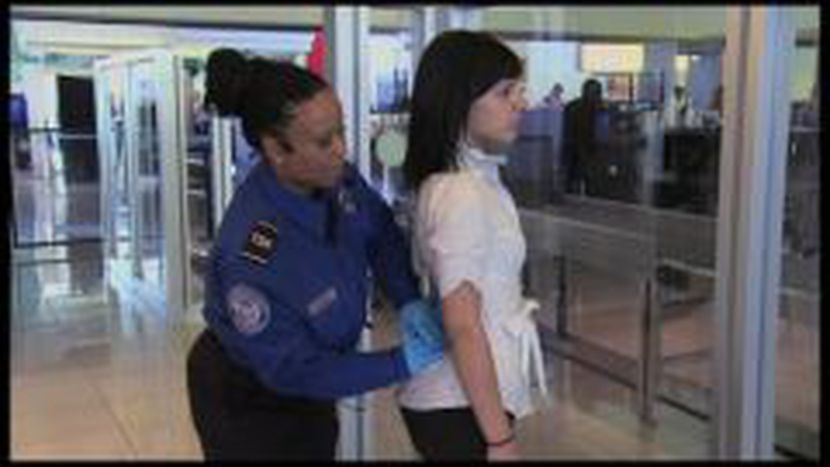
Transparency unlimited - the pros and cons of security scanners
Published on
Translation by:
Nathalie JusseaumeBy Stanislava Gaydajieva The debate whether European airports should use body scanners was fierce and many-sided. Should Europe follow the US and install numerous security scanners at its airports? Europe already did. Even though partially.
Body scanners were allowed on European airports since 25 December 2009 when a young terrorist attempted to blow up a plane flying from Amsterdam to Detroit with plastic explosives hidden in his underwear.
This provoked the immediate reaction of the European governments and security scanners were quickly tested in Germany, France, Italy, and the Netherlands. However, till November last year, there was no unified legislation on the application of the scanners at airports on European level. Not until November, when the European Union adopted new rules on the use of security scanners. To begin with, member states and airports do not have an obligation to deploy security scanners, but if they decide to do so, they will have to comply with a set of operational conditions and performance standards.
European legal rules
The new EU legislation allows the use of security scanners only in accordance with minimum conditions such as that security scanners shall not store, retain, copy, print or retrieve images; any unauthorised access and use of the image is prohibited and shall be prevented; the human reviewer analysing the image shall be in a separate location and the image shall not be linked to the screened person and others. Furthermore, passengers must be informed about conditions under which the security scanner control takes place and should be given the right to choose an alternative method of screening instead. Most importantly, security scanners which use X-ray technology are completely forbidden in Europe.
Even though, the Union tried to ensure a proper, safe and respectful for passengers usage of body scanners, we could still ask to what extent the official requirements are actually fulfilled on an equal footing by all airports in EU. There are a couple of additional disadvantages of body scanners which need to be mentioned.
Disadvantages of body scanners
For example, X-ray technology is officially forbidden, but is it proved that the one which will be used instead is harmless to human body? After all, we talk about radiation which, even in small quantities, is probably still harmful to us. So far, there are no reports on the harmful effect of the rest of the technology in use.
Secondly, the safer the machine, the more expensive it is. If airports and member states will have to cover European standards, then they will definitely opt out for more expensive scanners. In times of crisis when budgets are tight, it becomes questionable whether European tax-payers should and are ready to pay for something which is more expensive and probably harmful to them.
Security is most important
Security is the main aim behind the installment of body scanners. It is of a vital importance to anyone, anywhere, anytime. Definitely, body scanners can save quite a number of lives when it comes to terrorist attacks. This is the strongest argument for the introduction of the machines - the number of lives at stake. And it is a valid one.
However, we can not close our eyes to the disadvantages of security scanners either. Lack of personal space, privacy and the numerous reported cases of sexual harassment in the US which might also appear in Europe, are definitely weaknesses.
Moreover, the Protection of Children Act in the United Kingdom, for instance, explicitly prohibits in its section one ‘to take, or permit to be taken any indecent photograph of a child’, as well as the distribution, possession and publication of those. Presumably, all European states have similar provisions in their national legislation which will have to be changed in order to allow for the implementation of security scanners. Could that lead to less protection for children?
Security scanners have their pros and cons and the debate will remain intense. What is important, thought, is to make sure that while trying to achieve better security and safer journey for some, there is no gap in protection for others and the rights of all are closely observed.
Translated from Unbegrenzte Transparenz – die Vor- und Nachteile von ‘Nacktscannern’



